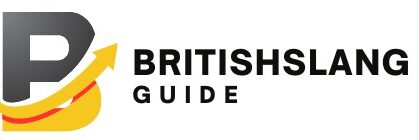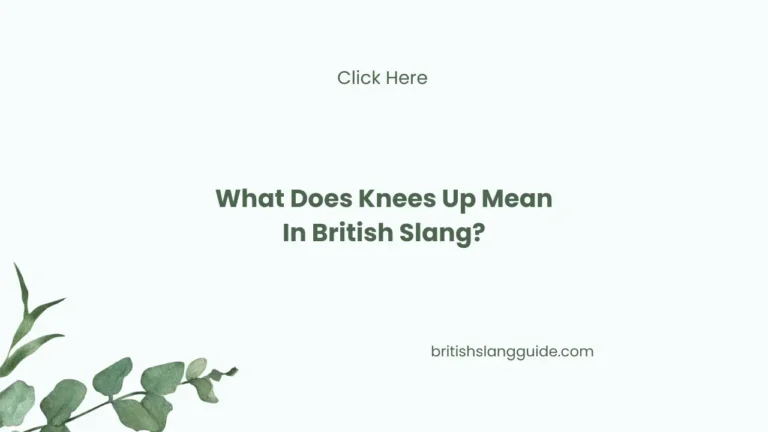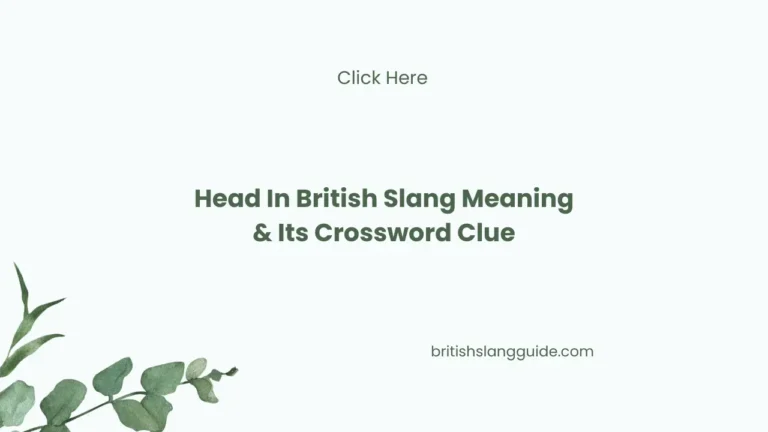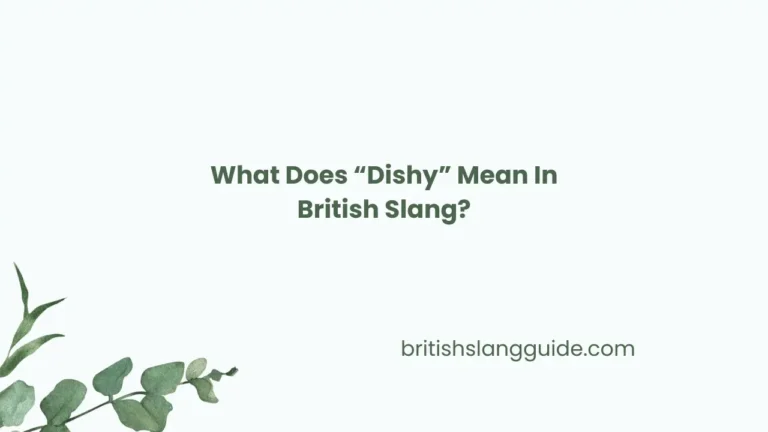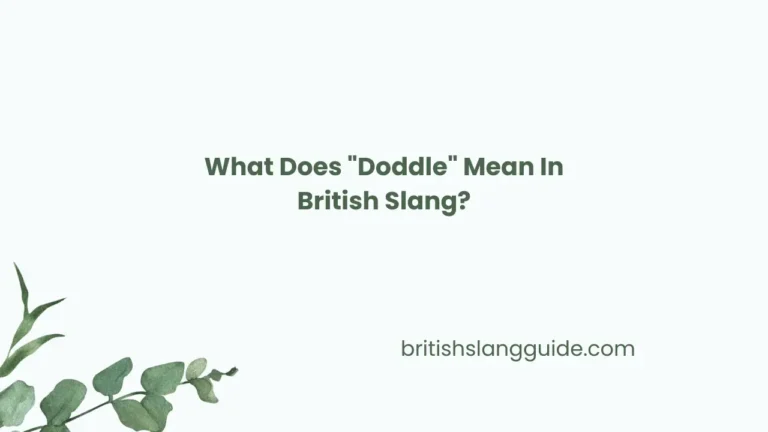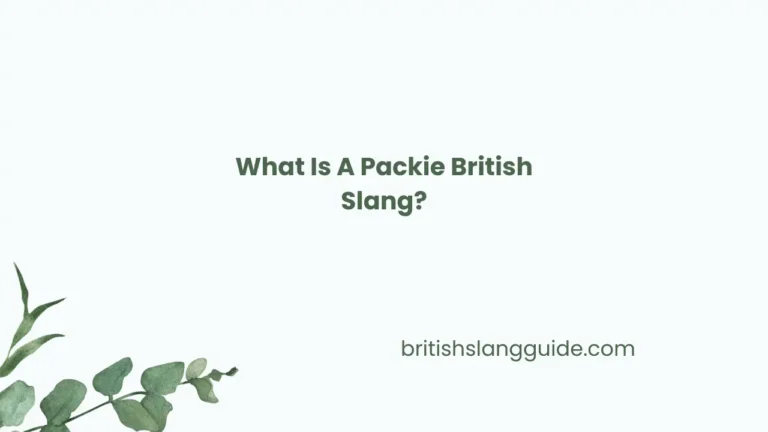15 Best British Slangs Started With “C”
British slang is a very diverse and evolving language that reflects the unique cultural identity of the UK. Mostly, the new shorthand words or crosswords evolved in the British language after World War 1. British slang adds a unique and playful flavor to everyday conversations, from the busy streets of London to charming villages. In this article, we dig into the world of British slang terms that begin with the letter “C.” So, let’s start and get ready to explore the unique world of British expressions.
What Does “Camper” Mean in British Slang
Meaning:
“Camper” in British slang means someone who is over-cautious or very careful in their approach to situations. It can also describe something that is excessively easy or not challenging enough.
Origin:
The term “camper” originated from the world of gaming, specifically in the context of players who would wait in a hidden or safe spot for extended periods during gameplay. You can say that this word was started used by those people, who love fighting games because they mostly hide in areas to spot their opponents.
Synonyms:
Some synonyms for “camper” include “turtler” or “hider.”
Easy-peasy: From the word, it was something that was extremely simple or easy.
- Usage Example: “The exam was easy-peasy; I finished it in no time.”
Piece of cake: This was used for something that is easy to handle.
- Usage Example: “Fixing the car was a piece of cake; it only took me ten minutes.”
Usage Examples:
- “He’s such a camper in video games, always hiding in the corner.”
- “The test was so easy; it was almost camper-level.”
2. What Does “CFC” Mean in British Slang
Meaning:
“CFC” stands for “Council Flat Commando.” It is used for someone who spends most of their time indoors, particularly in council flats.
Origin:
This slang term was started used by lazy, council housing residents, who often stay indoors mostly in their council housing.
Synonyms:
“Council House Commando” is another term with a similar meaning.
Pub grub: This term refers to food typically served in a pub, and simple manner.
- Usage Example: “Let’s grab some pub grub before heading home.”
Comfort food: Food that provides a sense of emotional comfort.
- Usage Example: “After a long day, I just want some comforting CFC and mashed potatoes.”
Usage Examples:
- “He’s a true CFC, never seen outside his flat.”
- “Stop being such a CFC and come out for a drink!”
3. What Does “Chap” Mean in British Slang
Meaning:
“Chap” is a friendly and informal term used to address a man or a boy. It conveys a sense of familiarity.
Origin:
The term “chap” has its roots in Victorian-era British English, and is often associated with some damper men.
Synonyms:
“Fellow,” “Bloke,” “Guy”
Bloke: A term for a man, often used in casual conversation.
- Usage Example: “I saw that bloke at the pub last night; he was hilarious.”
Guy: A common term for a man, used informally in everyday language.
- Usage Example: “Hey, guys, let’s grab a drink after work.”
Usage Examples:
- “Hello, old chap! How’s your day been?”
- “He’s a fine chap, always ready to lend a hand.”
4. What Does “Chav” Mean in British Slang
Meaning:
“Chav” is a derogatory term that was used for used for particular subcultures associated with low-income, aggressive behavior, and a cheap style of dress.
Origin:
The origins of “chav” are unknown, but it gained popularity in the early 2000s as a term to describe a type of young people from working-class backgrounds.
Synonyms:
“Scally,” “Townie”
Townie: This term is used in some regions to describe a young person from an urban area who wears sportswear and often engages in anti-social behavior.
- Usage Example: “Watch out for those townies hanging around the park; they can be trouble.”
Scally: This informal term is used to describe a young person, often implying reckless behavior.
- Usage Example: “That scally always causes trouble at the bus stop.”
Usage Examples:
- “Look at that group of chavs hanging around the corner.”
- “She dresses like such a chav, with all those gold chains.”
5. What Does “Cheeky” Mean in British Slang
Meaning:
“Cheeky” is a playful and famous term used to describe someone who is bold, or slightly hot in a charming way.
Origin:
The term “cheeky” has long been a part of British slang, often used to describe playful or mildly rebellious behavior.
Synonyms:
“Saucy,” “Impish,” “Playful”
Saucy: Bold or hot, often in a playful or teasing manner.
- Usage Example: “She gave him a saucy wink before leaving the room.”
Impudent: Showing a lack of respect playfully or humorously.
- Usage Example: “He made an impudent remark, but we all laughed.”
Usage Examples:
- “He gave me a cheeky smile before darting off.”
- “That was a cheeky remark; I like your sense of humor!”
6. What Does “Chuffed” Mean in British Slang
Meaning:
“Chuffed” is a term used to express happiness or satisfaction about something.
Origin:
The origin of “chuffed” is uncertain, but it has been a part of British slang for many years and reflects a sense of pride or contentment.
Synonyms:
“Pleased,” “Thrilled,”
Pleased: Extremely pleased or proud of something.
- Usage Example: “She was pleased as punch when she got the promotion.”
Thrilled: Feeling extremely happy or excited about something.
- Usage Example: “He was thrilled to receive the award for best actor.”
Usage Examples:
- “She was chuffed to bits with her new job offer.”
- “I’m chuffed with the results of the exam.”
7. What Does “Chuffed to Bits” Mean in British Slang
Meaning:
“Chuffed to bits” is similar to chuff but it’s an extension of “chuffed,” emphasizing a sense of happiness or pride.
Origin:
The origin of this term was also uncertain but this playful variation of “chuffed” adds an extra layer of energy to the expression.
Synonyms:
“Over the moon,” “Ecstatic,”
Over the moon: Feeling extremely happy or delighted.
- Usage Example: “She was over the moon when she found out she was accepted to her dream school.”
Ecstatic: Feeling over-excited.
- Usage Example: “They were ecstatic when they won the championship game.”
Usage Examples:
- “She was chuffed to bits when she found out she won the competition.”
- “He was absolutely chuffed to bits with the surprise party.”
8. What Does “Crikey” Mean in British Slang
Meaning:
“Crikey” is a sign of surprise, shock, or astonishment.
Origin:
This expression is thought to have originated in Australia but has become popular in British slang, often used for dramatic effect.
Synonyms:
“Blimey,” “Golly,”
Blimey: An expression of surprise or shock.
- Usage Example: “Blimey, I didn’t expect to see you here!”
Golly: An exclamation of surprise or astonishment.
- Usage Example: “Golly, that was a close call!”
Usage Examples:
- “Crikey, that was a close call!”
- “Crikey, look at the size of that spider!”
9. What Does “Cock-up” Mean in British Slang
Meaning:
“Cock-up” is a unique term used to describe a mistake, blunder, or error, often resulting in a serious situation.
Origin:
The origin of “cock-up” is the British slang term “cock,” meaning a mistake or mishap. It is often used in informal contexts to describe situations where things have gone wrong.
Synonyms:
“Mess-up,” ” “Fiasco”
Mess-up: A mistake or error, often resulting in confusion or disorder.
- Usage Example: “I made a real mess-up of the presentation; I forgot half of my notes.”
Fiasco: A complete failure or disaster, usually due to a series of errors.
- Usage Example: “The party turned into a fiasco when the music stopped working.”
Usage Examples:
- “I did so many cock ups that’s why Im depressed!”
- “The party turned into a real cock-up when the DJ didn’t show up.”
10. What Does “Codswallop” Mean in British Slang
Meaning:
“Codswallop” is a playful term used to describe nonsense, rubbish, or something that is untrue or wrong.
Origin:
The origins of “codswallop” are unclear, but some native speakers believe that it emerged in the early 20th century as a playful way to dismiss something as nonsense.
Synonyms:
“Balderdash,” “Nonsense”
Nonsense: Ideas, statements, or actions that lack sense or logic.
- Usage Example: “Don’t listen to him; he’s talking nonsense.”
Balderdash: Silly or meaningless talk, often used to dismiss rubbish ideas.
- Usage Example: “His explanation was pure balderdash; it made no sense at all.”
Usage Examples:
- “Don’t listen to him; it’s all codswallop!”
- “The explanation he gave was pure codswallop.”
11. What Does “Cor Blimey” Mean in British Slang
Meaning:
“Cor Blimey” is a sign of surprise, amazement, or astonishment, and is often used to express disbelief or shock.
Origin:
This phrase has some roots in Cockney rhyming slang, where “Cor Blimey” is a shortened form of “God Blind Me”.
Synonyms:
“Blimey,” “Crikey”
Blimey: An expression of surprise or shock.
- Usage Example: “Blimey, I didn’t expect to see you here!”
Crikey: An exclamation of surprise or astonishment.
- Usage Example: “Crikey, that was a close call!”
Usage Examples:
- “Cor Blimey, did you see the size of that fish?”
- “Cor Blimey, I never expected to see you here!”
12. What Does “Crack On” Mean in British Slang
Meaning:
“Crack on” is a British slang term used to ask or encourage someone to go on a task or activity with a sense or determination.
Origin:
The term “crack on” originated from the idea of cracking a whip which means to work faster.
Synonyms:
“Get on with it,” “Press on”
Get on with it: A phrase used to encourage someone to continue or proceed with a task.
- Usage Example: “Come on, let’s get on with it; we have a lot to do.”
Press on: This was used in the situation of challenges to continue moving forward.
- Usage Example: “Despite the setbacks, we need to press on and finish the project.”
Usage Examples:
- “We need to finish this project by tomorrow, so let’s crack on!”
- “Stop distressing and crack on with your homework.”
13. What Does “Cracking” Mean in British Slang
Meaning:
“Cracking” is an adjective used to describe something excellent, impressive, or outstanding.
Origin:
This term has been a part of British slang for decades, often used to express approval.
Synonyms:
“Fantastic,” “Excellent”
Excellent: It was used for the high quality or standard.
- Usage Example: “That was an excellent meal; I’d definitely come back here.”
Fantastic: Remarkably good or impressive.
- Usage Example: “The view from the top of the hill was fantastic; you could see for miles.”
Usage Examples:
- “That was a cracking goal he scored in the match!”
- “We had a cracking time at the concert last night.”
14. What Does “Customary” Mean in British Slang
Meaning:
“Customary” is a term used to describe something that is traditional, or usual in a particular context.
Origin:
The term “customary” has its roots in the Latin word “consuetudo,” meaning custom or habit.
Synonyms:
“Traditional,” “Conventional”
Traditional: Following long-established customs or practices.
- Usage Example: “It’s traditional to wear white at weddings in many cultures.”
Conventional: Following accepted standards or norms.
- Usage Example: “His speech followed the conventional format for graduation ceremonies.”
Usage Examples:
- “It’s customary to shake hands when you meet someone for the first time.”
- “It’s customary for us to have tea at four o’clock in the afternoon.”
Conclusion
British slang is a broad and ever-changing language that adds flavor to everyday conversations. From the cheeky to the chuffed, these slang terms also reflect the diverse culture of the UK. So, the next time you hear someone refer to a “chav” or exclaim “crikey,” you’ll be in the know!
